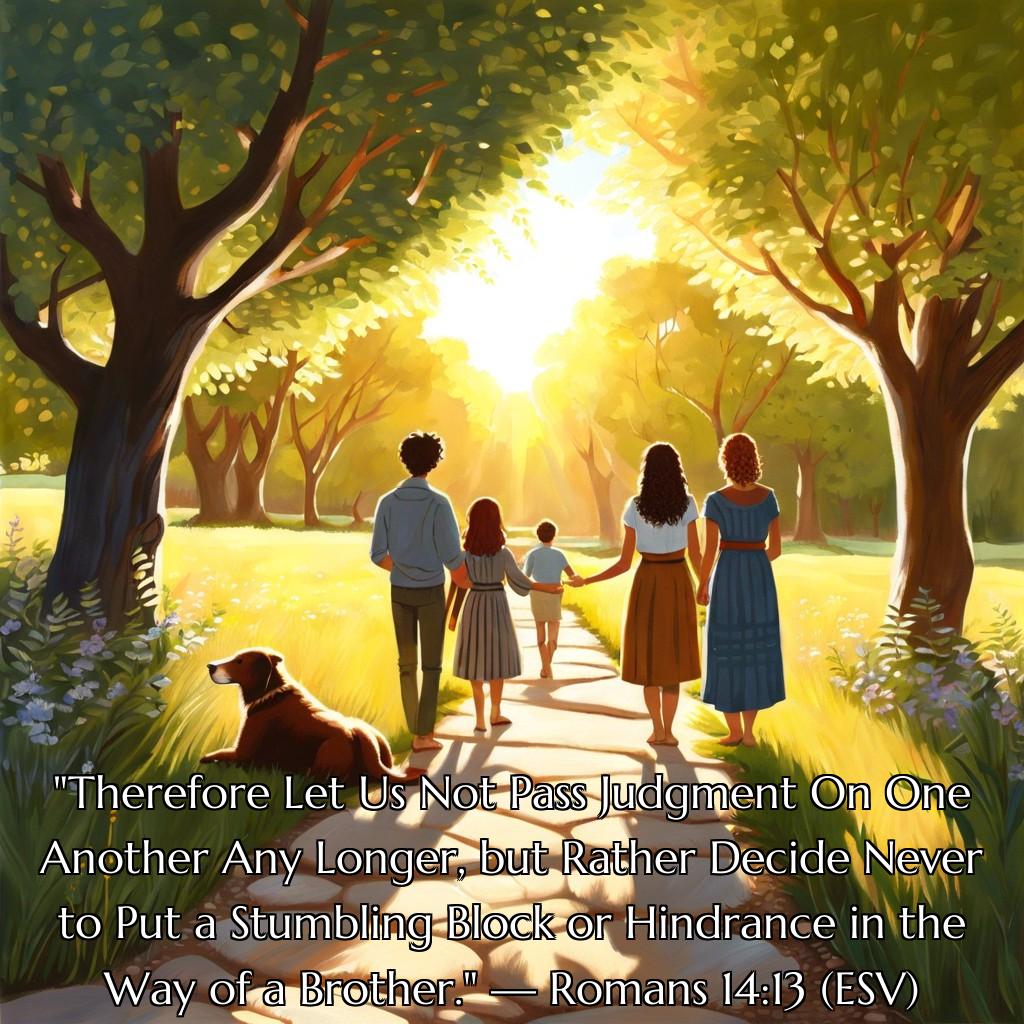This article highlights some of the Bible’s most chilling verses, providing insight into their meanings and messages.
As the temperature drops and the chill sets in, these “coldest” Bible verses bring to light the spiritual coldness and physical frosts depicted in Scripture. Exploring verses from Revelation to Ecclesiastes, we’ll uncover meanings that reveal both metaphorical and literal interpretations of coldness, giving you a deeper understanding of their context and significance. Dive in to discover how the Bible portrays the stark, bracing sensations of cold in both the natural world and the human heart.
Revelation 3:16 – “So, Because You Are Lukewarm—neither Hot nor Cold—I Am About to Spit You Out of My Mouth.”
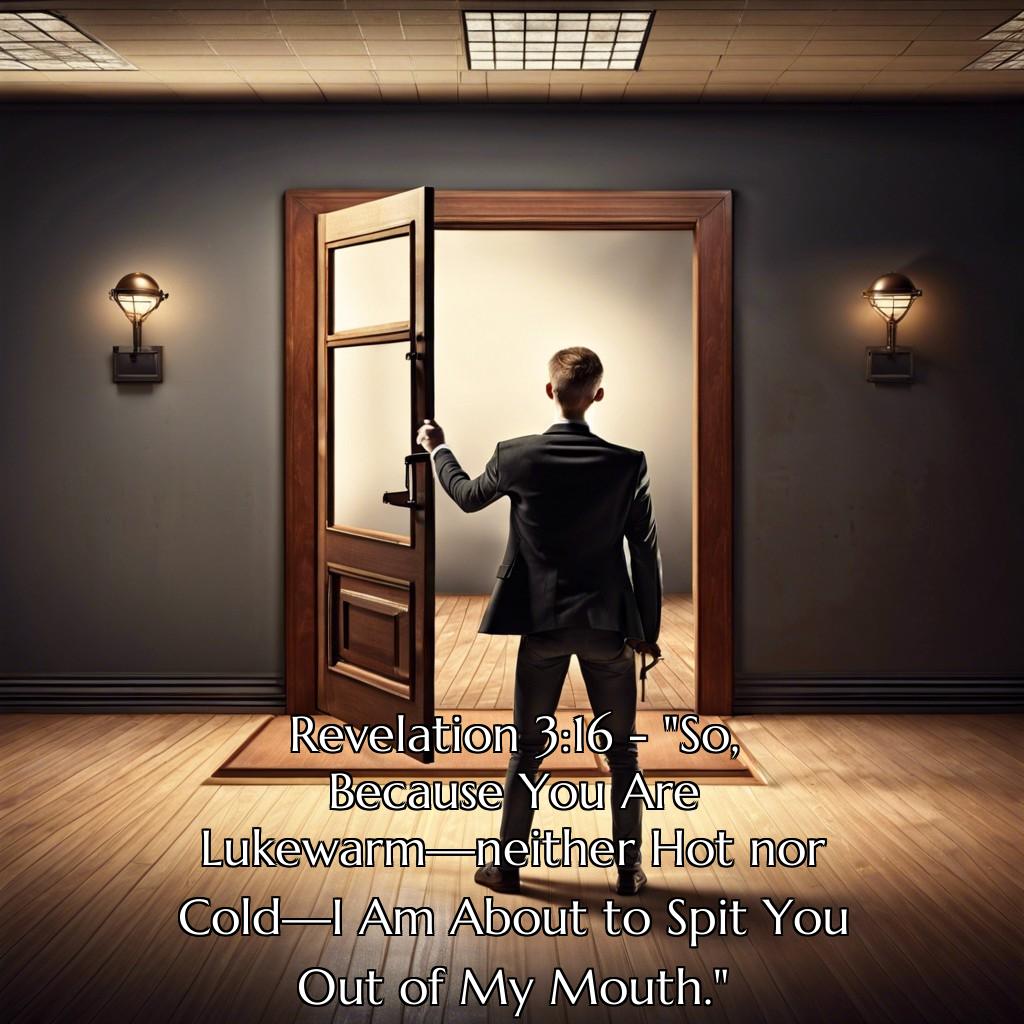
Lukewarmness in faith signifies a lack of commitment. This verse admonishes complacency in believers.
Being lukewarm means neither fully embracing nor fully rejecting faith. A half-hearted approach is displeasing to God. To “spit you out” symbolizes rejection due to this indifferent attitude.
Hot represents fervent, passionate faith. Cold indicates a stark rejection, yet even in coldness, there’s potential for striking change. Lukewarmness sits in a dangerous, passive middle ground.
This serves as a call to evaluate and reignite your spiritual fervor. Dive deeper or reassess your beliefs, but avoid the perilous state of indifference.
Matthew 24:12 – “Because of the Increase of Wickedness, the Love of Most Will Grow Cold.”
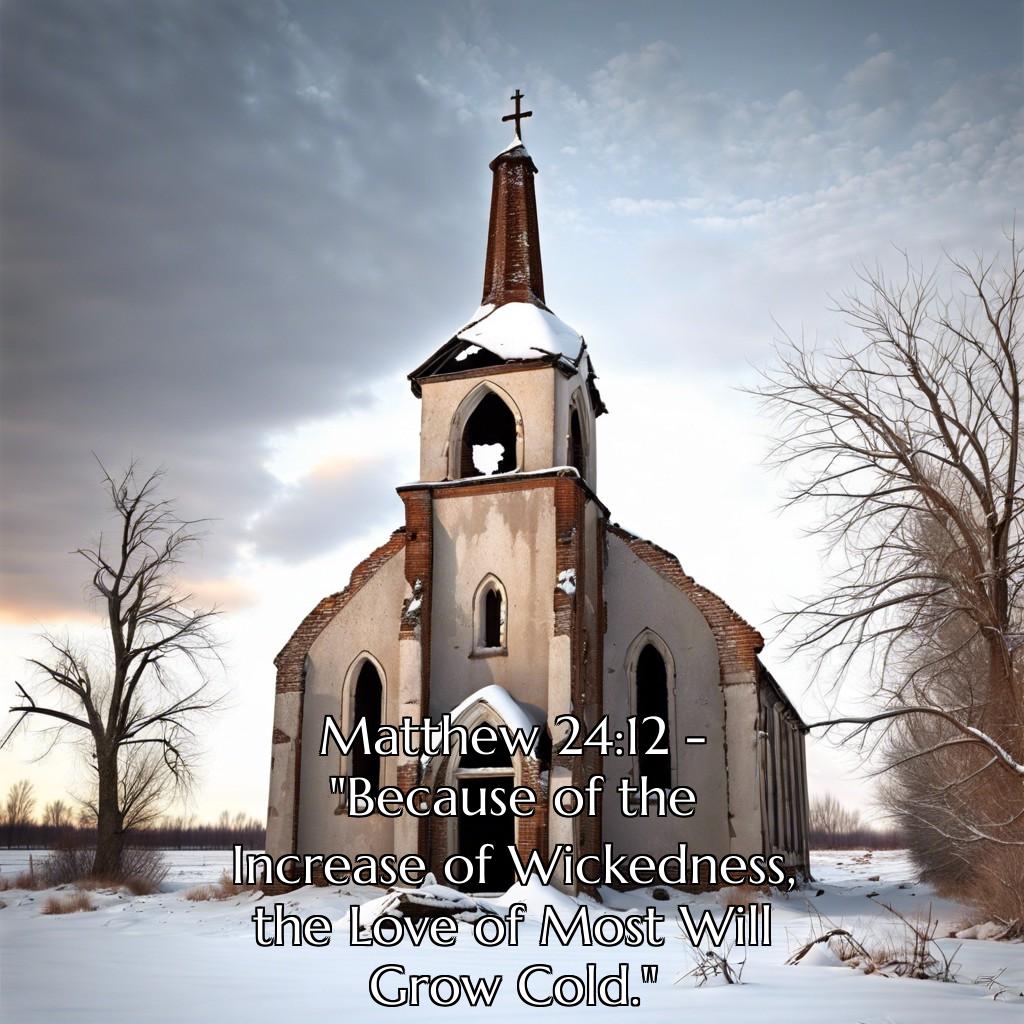
When Jesus speaks of love growing cold, He underscores the spiritual consequences of rampant wickedness. Here are a few key points to understand this verse:
First, it highlights the erosion of compassion and kindness due to the prevalence of sin. People’s hearts become desensitized, leading to emotional and spiritual numbness.
Second, it reflects a societal shift. As immorality increases, the general spirit of mutual care and community wanes, creating a cold social environment.
Finally, it serves as a warning. For believers, it’s a call to remain vigilant and guard their love against the chill of iniquity, fostering warmth amidst growing coldness. This verse is a significant reminder of the delicate nature of spiritual fervor in the face of pervasive wickedness.
Psalm 147:17 – “He Hurls Down His Hail Like Pebbles. Who Can Withstand His Icy Blast?”

This verse paints a vivid picture of God’s power through nature. His control over elements like hail demonstrates His might and the sometimes harsh aspects of divine intervention.
Firstly, hail is a form of judgment seen in the Bible, symbolizing God’s displeasure. It disrupts life, causing damage and fear, which signifies the seriousness of turning away from His will.
Secondly, the “icy blast” represents the immense power and inescapability of God’s actions. Just as no one can stand firm against a violent storm, resisting God’s will is futile.
Lastly, the imagery serves as a reminder of our vulnerability and the need to respect God’s creation and power. These formidable natural events prompt humility and reverence.
Understanding these points helps grasp the depth and significance of this verse and its reflection on divine authority.
Jeremiah 36:30 – “Therefore Thus Says the Lord Concerning Jehoiakim King of Judah: He Shall Have None to Sit On the Throne of David, and His Dead Body Shall Be Cast Out to the Heat By Day and the Frost By Night.”
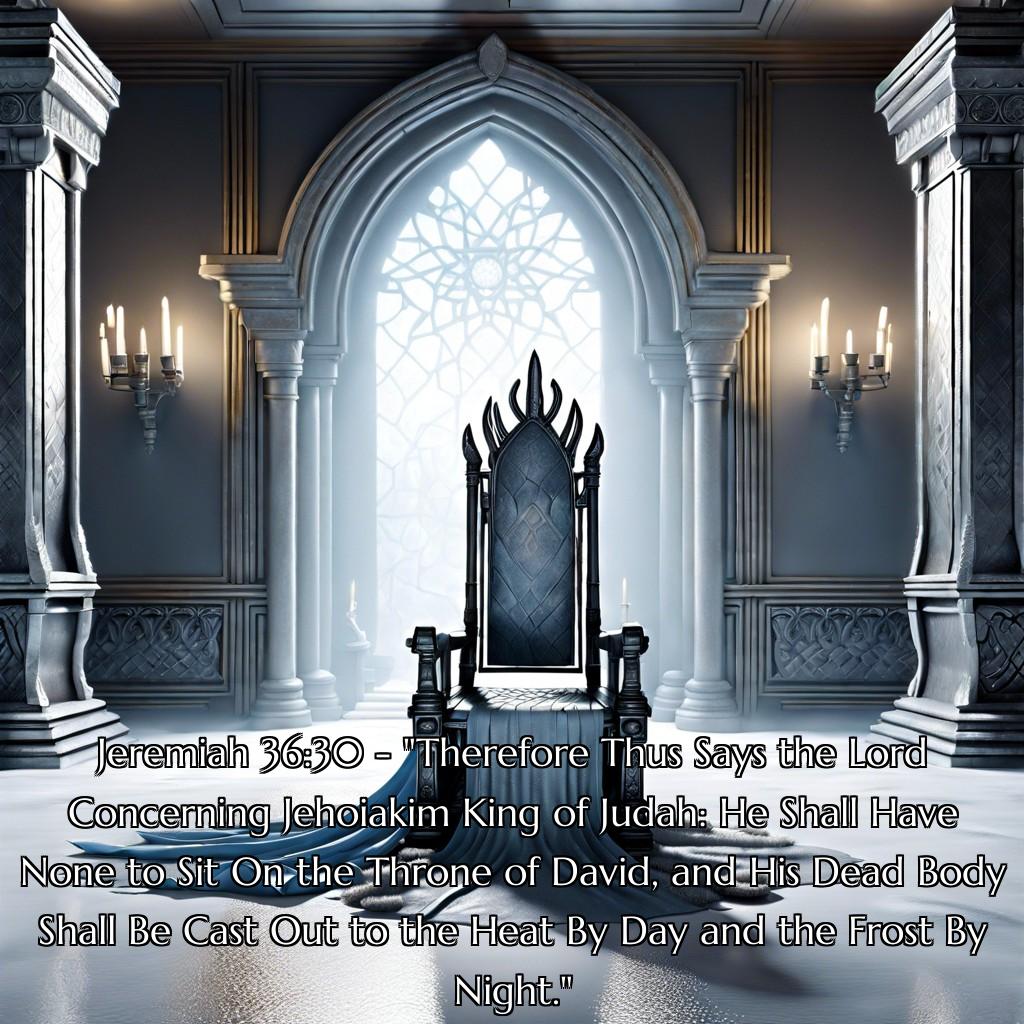
This verse delivers a vivid judgment on King Jehoiakim, prophesying a grim end for his reign and lineage. Here the imagery is stark and cold:
The absence of a successor from Jehoiakim on David’s throne signifies total loss of legacy.
His body exposed to the elements illustrates utter disgrace, lacking even a proper burial.
Heat and frost symbolize the complete desolation and harsh fate awaiting him, driven by divine judgment.
This serves as a powerful reminder of the consequences of defiance against God, evoking a chilling sense of finality. Disobedience to divine commands leads to inevitable and severe repercussions.
Job 37:9 – “The Tempest Comes Out From Its Chamber, the Cold From the Driving Winds.”

This verse from Job vividly depicts nature’s raw power and the chilling cold it can bring. It’s a reminder of God’s tremendous control over the elements.
- Divine Power: The reference to the tempest and cold winds emphasizes God’s omnipotence. He commands even the most uncontrollable aspects of nature.
- Human Perspective: For Job, caught in unimaginable suffering, this imagery parallels his personal turmoil, underlining both man’s vulnerability and God’s sovereignty.
- Metaphorical Interpretation: The cold winds can symbolize life’s harsh trials, reinforcing the idea that challenges often come suddenly and fiercely, much like a storm. God’s control over these elements serves as a reminder that He is the ultimate steward of our trials and tribulations.
This verse exemplifies the theme of submission to God’s mighty will, a central motif in the Book of Job.
Proverbs 25:20 – “Like One Who Takes Away a Garment On a Cold Day, or Like Vinegar Poured On a Wound, Is One Who Sings Songs to a Heavy Heart.”
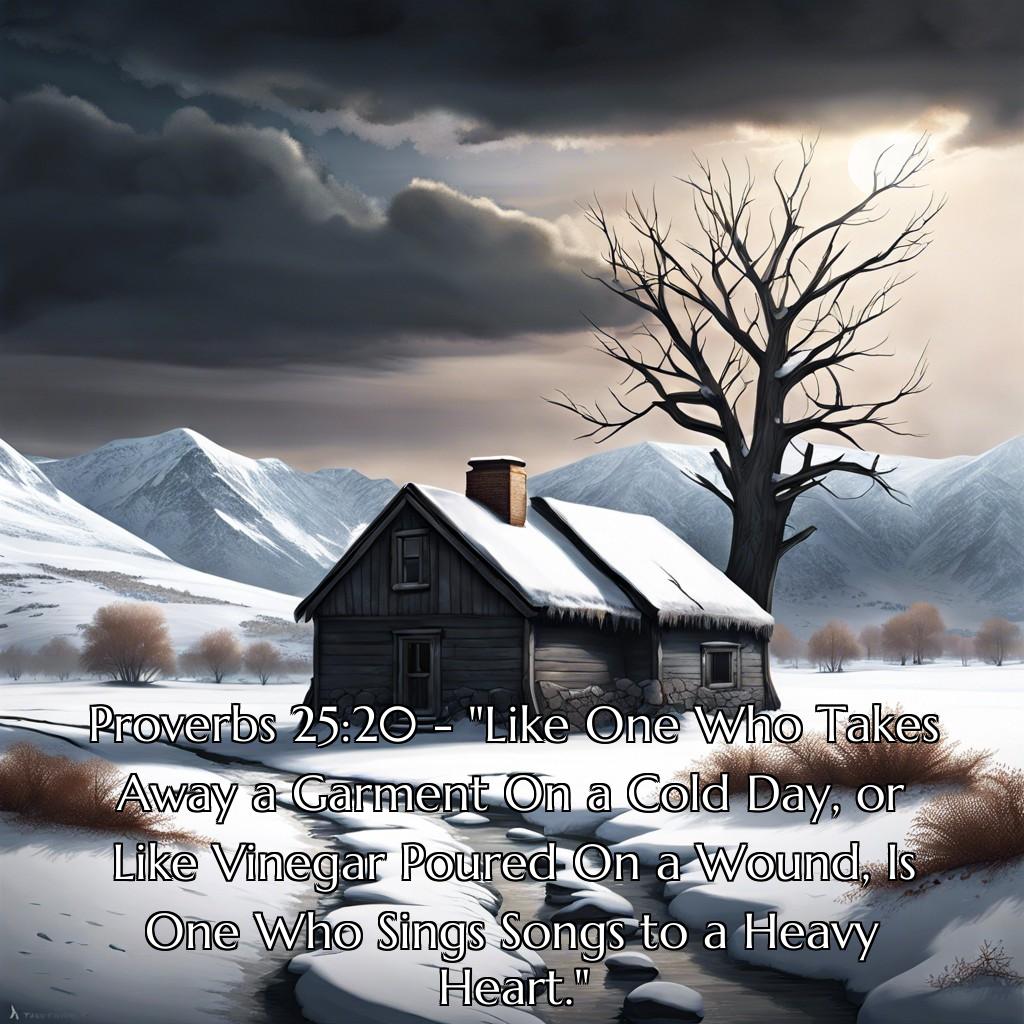
This proverb uses vivid imagery to stress the importance of sensitivity. Taking away a coat on a cold day symbolizes causing discomfort when someone is already vulnerable. It’s a reminder to be empathetic.
Likewise, pouring vinegar on a wound amplifies pain. This parallels how insensitively delivered joy can worsen sorrow. It emphasizes the need for appropriate responses to others’ emotions.
Singing cheerful songs to someone with a heavy heart can come across as dismissive. It’s like ignoring their grief. Compassion and understanding are vital in such moments.
At its core, this verse teaches us to respond to others with tact and empathy, recognizing the weight of their emotions.
Ecclesiastes 4:1 – “Again I Looked and Saw All the Oppression That Was Taking Place Under the Sun: I Saw the Tears of the Oppressed—and They Have No Comforter; Power Was On the Side of Their Oppressors—and They Have No Comforter.”
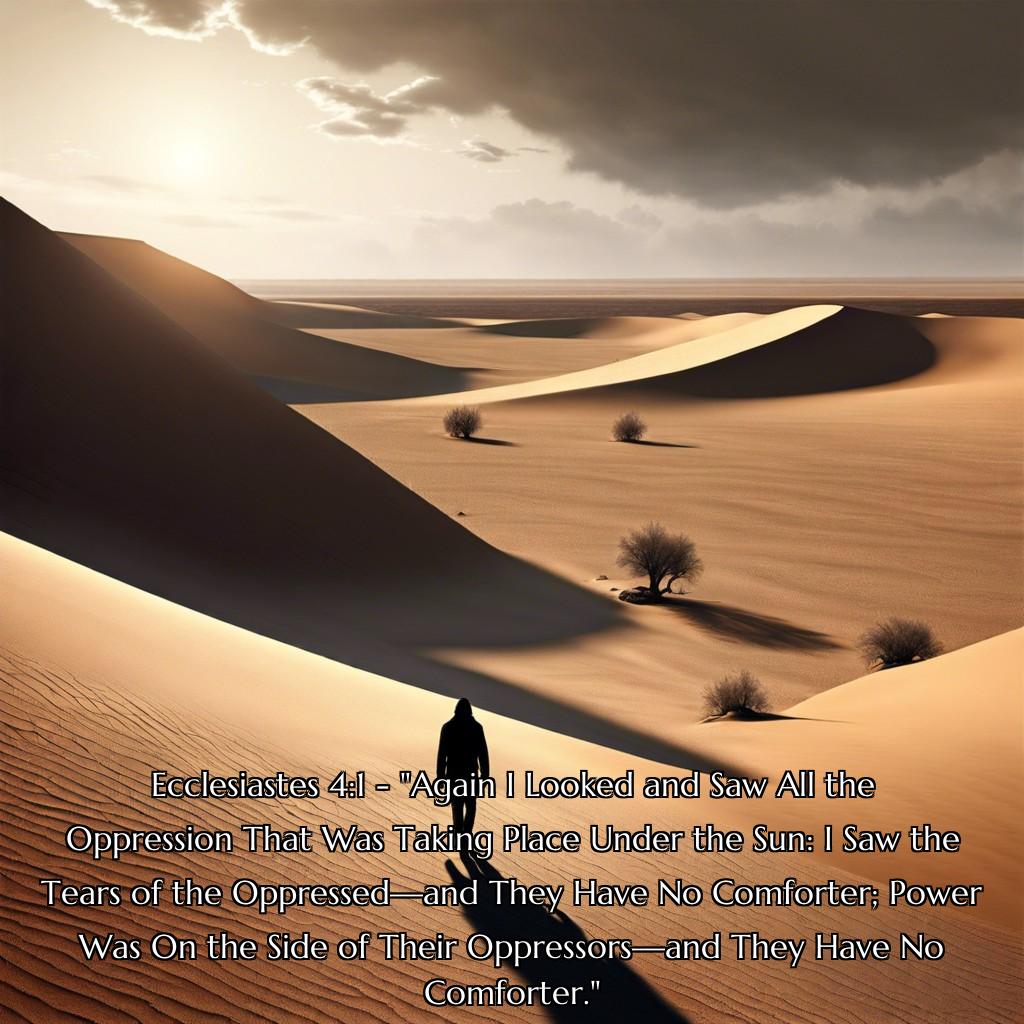
This verse from Ecclesiastes paints a vivid picture of societal injustice and human suffering. The writer observes the widespread oppression and the tears of those who are powerless. The lack of a “comforter” signifies the absence of empathy and support, highlighting the loneliness felt by the oppressed.
- Key points to consider:
- The verse underscores the imbalance of power that often exists in society.
- It emphasizes the deep sorrow and helplessness experienced by those who are oppressed.
- The repetition of “they have no comforter” accentuates the severity of their isolation and the dire need for compassion.
This haunting imagery serves as a powerful call to recognize and address the injustices that persist around us.


